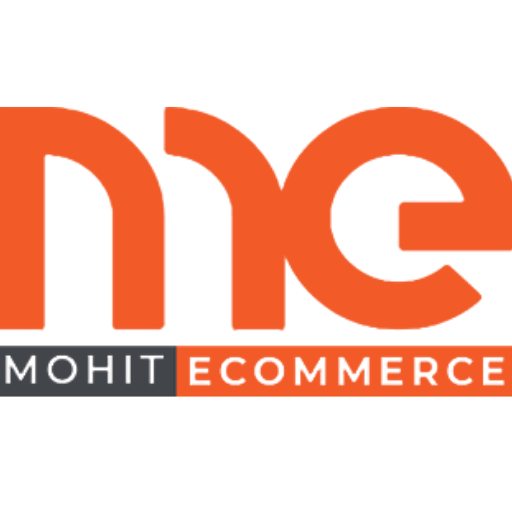To thrive as an eCommerce seller, you must excel in managing inventory, crafting engaging product listings, ensuring excellent customer satisfaction, utilizing SEO tactics, and analyzing performance data. By honing these skills, you can attract a larger customer base, boost visibility, and foster customer loyalty. Remember to anticipate market trends, refine marketing skills, manage finances wisely, and embrace data analysis to make informed decisions. Implement strategic steps like thorough market research, niche identification, and efficient online store setup. Stay tuned to strategic insights and emerging trends to elevate your eCommerce journey to greater heights.
Key Takeaways
- Focus on inventory management for efficient operations.
- Create compelling product listings to attract customers.
- Ensure high levels of customer satisfaction for loyalty.
- Utilize SEO techniques for online visibility.
- Monitor performance metrics for informed decisions.
What is an eCommerce Seller?
Interested in diving into the world of eCommerce and becoming a successful seller? An eCommerce seller is someone who operates within the domain of online sales, offering various products to customers through platforms like websites or online marketplaces. As an eCommerce seller, you are at the forefront of the digital marketplace, engaging with customers, managing inventory, and driving sales for your eCommerce business.
Sellers in the eCommerce industry have the opportunity to reach a vast audience beyond geographical boundaries, tapping into a global market. Through carefully curating your products, optimizing your online presence, and providing exceptional customer service, you can establish a thriving eCommerce business. Understanding market trends, utilizing effective marketing strategies, and staying updated on industry developments are essential for success in the competitive world of online retail.
As an eCommerce seller, you have the flexibility to tailor your business to your strengths and interests, whether you are selling handmade crafts, vintage items, or innovative tech gadgets. Embrace the dynamic nature of eCommerce, adapt to changing consumer preferences, and watch your online sales soar.
Why Choose to Become an eCommerce Seller?

Considering a shift to eCommerce selling? Opting to become an eCommerce seller opens up a world of opportunities for reaching a larger customer base, increasing visibility, and ultimately driving profits. Leveraging online sales channels, you can expand your business beyond geographical boundaries and tap into a global market. The digital landscape offers a level playing field for businesses of all sizes, allowing you to compete with larger corporations while catering to niche markets.
One of the key reasons to become an eCommerce seller is the ability to connect with customers 24/7, providing convenience and flexibility that traditional brick-and-mortar stores may lack.
With the right strategies in place, you can enhance customer experience, build loyalty, and drive repeat sales. By utilizing the scalability of eCommerce, you can grow your business without the constraints of physical infrastructure, making it a cost-effective way to expand your operations. Embracing eCommerce as a selling platform can revolutionize your business, offering endless possibilities for growth and success.
How to Become a Successful eCommerce Seller?
Ready to embark on the journey of becoming a successful eCommerce seller? To thrive in the world of online selling, concentrate on key aspects such as inventory management, compelling product listings, and ensuring high levels of customer satisfaction. Effective inventory management plays a vital role in meeting demand, preventing stockouts, and streamlining operations. Keep tabs on your stock levels, analyze sales trends, and replenish popular items promptly.
Craft engaging product listings that offer clear descriptions, high-quality images, and competitive pricing to attract potential buyers. Utilize search engine optimization techniques to boost visibility and expand your audience reach. Give priority to customer satisfaction by providing excellent customer service, seamless returns, and prompt responses to inquiries. Satisfied customers are more likely to leave positive reviews and recommend your store to others.
Consistently monitor and analyze your performance metrics to pinpoint areas for improvement and leverage successful strategies. By emphasizing inventory management, optimizing product listings, and giving priority to customer satisfaction, you can position yourself for success as an eCommerce seller.
5 Essential Skills Every eCommerce Seller Needs

Ready to elevate your eCommerce game? To succeed as a seller, you’ll need to master understanding market trends, honing your marketing skills, delivering excellent customer service, managing finances effectively, and analyzing data to make informed decisions. These essential skills are the building blocks for thriving in the competitive world of eCommerce.
1. Understanding Market Trends
To truly excel as an eCommerce seller, mastering the art of understanding market trends is essential. Keeping a close eye on market trends allows you to anticipate shifts in consumer behavior, identify emerging opportunities, and stay ahead of the competition.
Analyzing data and monitoring industry developments, you can make informed decisions that drive your business towards success. Successful eCommerce sellers pay attention to market trends to adapt their strategies, product offerings, and marketing campaigns effectively.
Understanding the nuances of market trends empowers you to tailor your approach to meet the evolving needs of your target audience and capitalize on changing demands. Embracing market trends also enables you to fine-tune your inventory, pricing, and promotions to align with what customers are seeking. Staying attuned to market trends and being proactive in your responses, you position yourself as a forward-thinking eCommerce seller poised for growth and sustained success.
2. Strong Marketing Skills
Leveraging strong marketing skills is an essential requirement for any eCommerce seller looking to thrive in the competitive online marketplace. Effective marketing strategies are vital for increasing brand visibility, attracting potential customers, and driving sales.
Through focusing on customer experience, you can create lasting relationships and build trust with your audience. Utilizing social media marketing allows you to reach a wider audience and engage with customers in real-time. Implementing digital marketing services such as SEO and email campaigns can help you target specific demographics and boost conversion rates.
To succeed as an eCommerce seller, you must stay ahead of the curve through constantly refining your marketing techniques and staying informed about industry trends.
Experiment with different marketing approaches to see what resonates best with your target audience. Continuously optimizing your marketing efforts can enhance brand awareness and maximize your online presence. Remember, in the ever-evolving digital landscape, strong marketing skills are the key to standing out and achieving long-term success.
3. Excellent Customer Service
With customer service being an essential aspect of success in eCommerce, mastering the art of providing excellent customer support is vital for every online seller. Engaging effectively with your customers not only fosters loyalty but can also lead to positive customer reviews, which are important for building credibility in the online marketplace.
Prioritizing exceptional customer service, you can set yourself apart from competitors and create a positive shopping experience that encourages repeat business.
Online sellers must integrate customer service seamlessly into their business operations to guarantee a smooth and efficient process for addressing customer queries and concerns. Prompt responses, personalized interactions, and efficient issue resolution are key components of excellent customer service.
Actively listening to customer feedback and continuously improving your support processes, you can enhance customer satisfaction and build a reputation for reliability and professionalism in the eCommerce industry.
4. Financial Management
In the dynamic landscape of eCommerce, mastering the art of financial management is a fundamental skill that every online seller must possess. Keeping a close eye on operational costs and profit margins is vital for the success of your online business. Through understanding your financial standing, you can make informed decisions to optimize your operations and maximize profitability.
One key aspect of financial management is establishing and managing business credit lines. These credit lines can provide you with the necessary funds to invest in inventory, marketing, or technology upgrades. However, it is essential to use them wisely and ensure timely repayments to maintain a healthy financial reputation.
Regularly reviewing your financial data and performance metrics can help you identify areas for improvement and make strategic adjustments to drive growth. With cultivating strong financial management skills, you can navigate the financial complexities of eCommerce confidently and set yourself up for long-term success.
5. Data Analysis Abilities
Mastering data analysis abilities is an essential skill that can propel your eCommerce business to new heights. By honing your data analysis skills, you can optimize your ecommerce fulfillment process, ensure you have the right sellable inventory in stock, and gain complete order visibility to enhance customer satisfaction. Understanding and interpreting data effectively allows you to make informed decisions, identify patterns, and forecast trends, giving you a competitive edge in the market.
To excel in data analysis for your ecommerce venture, familiarize yourself with tools like Google Analytics, Excel, or other data analytics software. Dive into metrics such as conversion rates, customer acquisition costs, and average order value to gain valuable insights into your business performance. With strong data analysis abilities, you can refine your marketing strategies, personalize customer experiences, and streamline your operations for increased efficiency and profitability.
| Benefits of Data Analysis | Ways to Improve | Tools to Use |
|---|---|---|
| Enhances decision-making | Continual learning | Google Analytics |
| Improves customer satisfaction | Data visualization | Excel |
| Boosts operational efficiency | Seek mentorship | Data analytics software |
| Identifies market trends | Attend workshops | SQL |
10 Steps to Launch Your eCommerce Business
Ready to kickstart your eCommerce journey? To launch your online business successfully, focus on key steps such as conducting thorough market research, pinpointing your niche, setting up an appealing online store, carefully selecting your products, and integrating secure payment solutions. Following these strategic steps, you’ll be on the path to establishing a solid foundation for your eCommerce venture.
1. Market Research
Considering launching an eCommerce business? Market research is a vital step in setting yourself up for success. Understanding your target audience, analyzing the competitive marketplace, and crafting compelling product descriptions are key components of effective market research. Through delving into market research, you gain insights into consumer preferences, behaviors, and trends that can guide your business decisions.
Identifying your target audience is essential. Who are they? What are their needs and wants? Conduct surveys, analyze data, and engage with potential customers to gather valuable information. Next, assess the competitive marketplace. Who are your competitors? What are their strengths and weaknesses? Understanding the landscape will help you position your business uniquely.
Crafting detailed product descriptions is another crucial aspect of market research. Highlighting the benefits, features, and uniqueness of your products can set you apart from competitors. Through investing time and effort in market research, you pave the way for a successful eCommerce venture.
2. Identifying Your Niche
To kickstart your journey towards launching a successful eCommerce business, honing in on your niche is an essential initial step. Identifying your niche involves narrowing down your focus to a specific product category or types of products that cater to a particular target market. Understanding your target market is necessary as it allows you to tailor your inventory to meet their needs and preferences effectively.
When selecting your niche, consider your interests, expertise, and the market demand. Conduct thorough market research to identify gaps in the market that your eCommerce business can fill. By choosing a niche that resonates with your passions and aligns with market trends, you increase your chances of success.
It’s important to strike a balance between a niche that has enough demand to sustain your business and one that isn’t oversaturated with competitors. By carefully selecting your niche based on a deep understanding of your target market and the types of products they seek, you set a strong foundation for your eCommerce business’s growth and profitability.
3. Setting Up Your Online Store
In the process of shifting from identifying your niche to launching your eCommerce business, the vital step of setting up your online store emerges as an important milestone. When venturing into the online business world, establishing a solid foundation for your marketplace is necessary for success. Here are some key steps to take into account:
- Choose the Right Platform: Select a user-friendly and customizable platform that fits your needs.
- Design Your Store: Create a visually appealing and easy-to-navigate website to attract customers.
- Set Up Payment Gateways: Make sure secure payment methods are in place to facilitate seamless transactions.
- Optimize for Selling: Implement SEO strategies and user-friendly features to enhance the selling process.
4. Selecting Your Products
When starting the journey of launching your eCommerce business, the essential task of selecting your products takes center stage. To drive successful ecommerce sales, it’s important to offer a diverse variety of products that cater to your target audience’s needs and preferences.
Begin conducting thorough market research to identify trending items and gaps in the market that your business can fill. Once you have a clear understanding of your target market, focus on product sourcing strategies that align with your brand’s values and quality standards. Whether you choose to manufacture your own products, partner with suppliers, or dropship, make sure that the products you select are of high quality and in demand.
Consider the scalability of your chosen products and how they fit into your long-term business goals. When carefully curating your product selection based on market trends, consumer preferences, and your brand identity, you can set a strong foundation for your eCommerce business’s success.
5. Implementing Payment Solutions
Amidst the exciting journey of launching your eCommerce business, integrating seamless payment solutions stands as a pivotal step towards realizing your online venture’s success. When it comes to implementing payment solutions, there are several key factors to take into account:
- Payment Options: Provide a variety of payment methods to cater to different customer preferences and increase conversion rates.
- Payment Policy: Clearly outline your payment policy to establish trust with customers and reduce disputes.
- Payment Methods: Explore different payment gateways and choose ones that are secure, user-friendly, and cost-effective.
- Payment Processing Fee: Be mindful of the fees associated with different payment processors to optimize your profit margins.
6. Optimizing for SEO
Exploring the digital landscape of eCommerce requires a strategic approach to ensure your business not just flourishes but stands out amidst the online competition. Optimizing your eCommerce site for search engines is essential for attracting organic traffic. Utilizing various marketing strategies and tools, you can enhance your site’s visibility and reach a broader audience. Embedding keywords, creating high-quality content, and refining product descriptions are vital steps in improving your SEO.
To further enhance your eCommerce business, consider implementing automatically generated shipping labels and establishing a network of shipping providers to streamline the fulfillment process. This not only improves the customer experience but also contributes to your site’s overall efficiency. Below is a table highlighting key aspects of optimization for SEO:
| SEO Enhancement | Description |
|---|---|
| Keywords | Embed relevant keywords |
| Content Creation | Craft high-quality content |
| Product Descriptions | Optimize for search engines |
| Shipping Efficiency | Utilize auto-generated labels |
7. Marketing Your Store
To successfully launch your eCommerce business, mastering the art of marketing your store is vital. When it comes to marketing your online store, it’s important to engage with your audience effectively. Here are some key strategies to boost your marketing efforts and attract potential customers:
- Create a Strong Marketing Campaign: Develop a thorough marketing plan that includes social media, email marketing, influencer partnerships, and targeted ads to reach a wider audience.
- Build Relationships with Your Customers: Focus on creating a personalized experience for your customers to turn them into loyal customers. Offer excellent customer service and engage with them through feedback and special promotions.
- Utilize Data Analytics: Monitor the performance of your marketing campaigns using analytics tools to understand what strategies are working best and optimize your efforts accordingly.
- Stay Consistent and Innovative: Keep your marketing strategies fresh and relevant by adapting to trends and continuously testing new ideas to stay ahead of the competition.
8. Managing Inventory
With the swift pace of eCommerce, efficiently managing your inventory becomes a cornerstone of launching a successful online business. Inventory management is vital for keeping track of stock levels, ensuring timely deliveries, and optimizing your supply chain. Consider utilizing fulfillment centers to streamline your operations and reduce shipping fees.
Placing your inventory in fulfillment centers strategically located close to your target market, you can expedite order processing and minimize shipping costs.
Maintaining accurate inventory records is essential to preventing stockouts and overstock situations, which can impact your bottom line. Implementing inventory management software can aid in tracking product movement, forecasting demand, and automating reorder processes.
Regularly review your inventory metrics to identify trends, adjust your purchasing strategy, and optimize your stock levels. Moreover, negotiate favorable shipping rates with carriers to minimize shipping fees and enhance your overall cost-efficiency. Effectively managing your inventory, leveraging fulfillment centers, and optimizing your supply chain, you can lay a solid foundation for your eCommerce success.
9. Customer Engagement Strategies
Engaging with your customers is the lifeblood of your eCommerce business. To guarantee a successful online experience and nurture customer loyalty, consider implementing the following customer engagement strategies:
- Personalized Communication: Customize your messages to each customer to make them feel valued and understood.
- Interactive Content: Involve your customers through quizzes, polls, or interactive product showcases to make their online experience more dynamic.
- Timely Delivery Completion: Ensure on-time delivery completion and keep customers informed throughout the shipping process to build trust and satisfaction.
- Effective Marketplace Management: Sustain a strong presence on your chosen marketplace by regularly updating your product listings, responding to customer inquiries promptly, and managing customer reviews to enhance your reputation.
10. Analyzing Your Performance
How do you measure the success of your eCommerce business? Analyzing your performance is essential to understanding your marketplace performance and making informed decisions to drive growth. Start by examining your conversion rates to see how effective your online store is at turning visitors into customers. Through detailed analysis of your sales data, you can identify trends, pinpoint areas for improvement, and capitalize on opportunities for expansion.
Consider the impact of channel usage on your overall performance – whether it’s social media, email marketing, or paid advertising, determining which channels yield the best results can help you allocate resources more effectively.
Regularly tracking key performance indicators and setting benchmarks will enable you to monitor progress and make adjustments to optimize your eCommerce operations. By staying proactive and responsive to your data, you can continuously refine your strategies and enhance your business’s overall success in the competitive online marketplace.
Top eCommerce Platforms for Sellers

Whether you’re just starting out or looking to expand your online presence, selecting the right eCommerce platform is essential for your success as a seller. When choosing a platform, factors like the online marketplace, product catalog capabilities, fulfillment network integration, and shipping rate options play a significant role. Here are some top eCommerce platforms to keep in mind:
- Shopify: Known for its user-friendly interface and extensive app store, Shopify is great for sellers of all sizes.
- WooCommerce: Ideal for those already using WordPress, WooCommerce offers flexibility and customization options.
- BigCommerce: With built-in features like SEO tools and responsive themes, BigCommerce is suitable for scaling businesses.
- Magento: A robust platform favored by larger enterprises, Magento provides advanced customization and scalability options.
Each of these platforms offers unique features, so assess them based on your specific needs and long-term goals to make the best choice for your eCommerce business.
Creating a Unique Brand Identity in eCommerce
Occasionally, standing out in the crowded eCommerce landscape demands more than just offering great products. As an ecommerce seller, creating a unique brand identity is essential for success. Your brand identity is what sets you apart from the competition, resonates with your target audience, and builds trust.
To craft a distinctive brand identity, start by defining your brand values, mission, and voice. These elements should be reflected consistently throughout your website, social media, packaging, and customer interactions.
In order to be successful, make sure that your brand identity is memorable and aligns with the products or services you offer. Consider the colors, fonts, and imagery that represent your brand and make it recognizable. Additionally, storytelling can be a powerful tool in conveying your brand’s message and connecting with customers on a deeper level. Investing time and effort in creating a unique brand identity can strengthen your position in the competitive ecommerce market and attract loyal customers who resonate with your brand.
Understanding eCommerce Seller Fees

Curious about the financial aspects of being an ecommerce seller? Understanding the various fees associated with selling online is substantial for your success. Here are some key points to keep in mind:
- Fees: Be aware of the different fees involved, including listing fees, transaction fees, and subscription fees. Understanding these costs will help you price your products effectively.
- Shipping: Factor in shipping costs when setting your prices. Offering free shipping can attract more customers, but make sure to take into account these expenses in your pricing strategy.
- Commission Rate: Platforms often charge a commission on each sale. Compare commission rates across different platforms to choose the one that aligns best with your business goals.
- Delivery: Efficient delivery is essential for customer satisfaction. Optimize your delivery process to ensure timely and reliable shipping, reducing the risk of returns and negative feedback.
How to Market Your eCommerce Business Effectively?
To succeed in the competitive world of ecommerce, effectively marketing your online business is vital. When looking to promote your ecommerce business, consider partnering with a reputable marketing agency that specializes in digital strategies. A marketing agency can assist you in creating targeted campaigns to reach potential customers and increase your online visibility. Utilize social media platforms, email marketing, and search engine optimization to promote your products and drive traffic to your online store.
Engaging content and eye-catching visuals can attract customers and encourage them to make a purchase. Moreover, pricing strategies play a significant role in marketing your ecommerce business. Offering competitive selling prices and running promotions can entice customers to choose your products over competitors.
Through focusing on strategic marketing efforts and continuously analyzing results, you can effectively market your ecommerce business and increase sales. Be proactive, stay innovative, and watch your online business thrive.
Building an Engaging Online Storefront
As you navigate the world of ecommerce, crafting an engaging online storefront is key to capturing the attention of potential customers and driving conversions. To create a compelling online presence, consider the following:
- User-Friendly Design: Guarantee your online platform is easy to navigate, with clear product categories and a seamless checkout process.
- High-Quality Visuals: Use professional images and videos to showcase your products effectively and enhance the overall shopping experience.
- Optimized Product Listings: Utilize a product listing service to guarantee accurate and detailed descriptions, along with relevant keywords for improved searchability.
- Efficient Seller Management: Implement streamlined business processes to handle orders, inventory, and customer inquiries promptly and professionally.
Common Mistakes to Avoid as a New eCommerce Seller
Occasionally, even the most promising eCommerce sellers can find themselves facing hurdles that hinder their success. When starting your eCommerce business, it’s important to avoid common mistakes that can impede your sales and growth. One prevalent error new sellers make is neglecting to optimize their presence on the chosen eCommerce platform. Without utilizing all the features and tools available, you might be missing out on opportunities to attract more customers and drive sales.
Another pitfall is overlooking marketplace operations. Efficiently managing inventory, order fulfillment, and customer service is crucial for the smooth running of your business. Failing to streamline these processes can lead to delays, errors, and dissatisfied customers, impacting your reputation and sales.
To succeed in the competitive eCommerce landscape, you must pay attention to these important aspects of your business. Without making these common mistakes and focusing on optimizing your eCommerce platform and marketplace operations, you can set yourself up for success in the online business world.
Leveraging Social Media for eCommerce Success
In the dynamic world of eCommerce, harnessing the power of social media is essential for propelling your online business to new heights. Leveraging social media platforms like Facebook Marketplace can greatly boost your eCommerce product listings and overall brand visibility. To maximize your success in the online marketplace, consider the following strategies:
- Engage with Your Audience: Interact with your followers, respond to comments, and create interactive posts to build a loyal customer base.
- Utilize Influencer Marketing: Collaborate with influencers in your niche to reach a wider audience and increase brand awareness.
- Run Targeted Ads: Take advantage of social media advertising tools to target specific demographics and increase conversion rates.
- Share User-Generated Content: Encourage customers to share their experiences with your products, creating social proof and enhancing credibility.
Customer Retention Strategies for eCommerce Sellers

Traversing the competitive terrain of eCommerce demands more than just attracting new customers—it hinges on your ability to retain existing ones. To excel as an eCommerce seller, implementing effective customer retention strategies is crucial. One key strategy is to prioritize delivery commitments. Ensuring that you consistently meet on-time delivery promises is essential to build trust and loyalty with your customers.
Additionally, personalized communication can go a long way in fostering lasting relationships. Tailoring your interactions based on past purchases or preferences can make customers feel valued and understood. Offering exclusive discounts or rewards to returning customers is another effective way to show appreciation and incentivize repeat purchases.
Moreover, actively seeking feedback and addressing any issues promptly can enhance customer satisfaction and retention. Continuously improving your products and services based on customer input demonstrates a commitment to meeting their needs and expectations. Remember, happy customers are more likely to become loyal, repeat buyers, contributing significantly to your eCommerce success.
Understanding Logistics and Fulfillment Options
To excel as an eCommerce seller, understanding the complex world of logistics and fulfillment options is essential. When it comes to shipping your products to customers, various factors come into play that can greatly impact your business. Here are some key points to take into account:
- Fulfillment Options: Choosing between self-fulfillment or third-party fulfillment services can influence your shipping efficiency.
- Logistics Management: Effective logistics management ensures timely deliveries, leading to higher customer satisfaction.
- Shipping Fees: Calculating shipping fees accurately based on factors like weight and distance is vital for maintaining profit margins.
- Understanding Chargeable Weight: Understanding how chargeable weight is determined helps in estimating shipping costs more accurately.
Mastering the logistics and fulfillment aspects of your eCommerce business is a strategic move that can distinguish you from competitors. By diving deep into these areas, you can streamline your operations, reduce costs, and provide a seamless shopping experience for your customers.
How MohitEcommerce Can Help You as an eCommerce Seller?
Exploring the competitive landscape of eCommerce can be a challenging endeavor, but with MohitEcommerce by your side, success is within reach. As a well-known marketplace platform, MohitEcommerce grants you unparalleled access to a vast network of sellers, expanding your reach and boosting your sales potential.
One of the key advantages of partnering with MohitEcommerce is its robust business functionalities. From inventory management to order processing and customer communication, the platform offers a suite of tools to streamline your operations and enhance efficiency. Additionally, MohitEcommerce’s competitive fee rates guarantee that you can maximize your profits while benefiting from the platform’s extensive resources and support.
Emerging Trends in the eCommerce Marketplace
Embrace the ever-evolving landscape of eCommerce as you explore the world of “Emerging Trends in the eCommerce Marketplace.” Stay ahead of the curve and position yourself for success through staying attuned to the latest developments shaping the online retail industry.
- Marketplace Positioning: Leveraging data analytics to optimize your placement within various online marketplaces can greatly impact your visibility and sales potential.
- Assortment of Products: Diversifying your product range to cater to a wider audience and adapt to changing consumer preferences is essential for sustained success.
- Flipkart Marketplace Advertiser: Partnering with prominent online platforms like Flipkart can enhance your reach and credibility, opening up new avenues for growth.
- Marketplace Financing: Exploring innovative financing options tailored for eCommerce sellers can provide the capital needed to expand your business and seize emerging opportunities.
How to Use Analytics to Drive Sales?
Navigate the world of eCommerce with precision utilizing the power of analytics to drive sales effectively. As an eCommerce seller, leveraging analytics can provide valuable insights into customer behavior, preferences, and trends. Utilizing analytics tools, you can track key metrics such as website traffic, conversion rates, and customer engagement to make data-driven decisions that boost sales.
To effectively use analytics, start by identifying your business goals and the key performance indicators (KPIs) that align with them. Set up tracking mechanisms to monitor these KPIs regularly and analyze the data to understand patterns and areas for improvement. Understanding your customers’ journey through analytics, you can optimize marketing strategies, product offerings, and customer experience to drive sales.
Furthermore, analytics can help you personalize the shopping experience, target specific customer segments, and forecast future trends. Continuously analyzing and optimizing your strategies based on data insights, you can stay ahead of the competition and maximize your eCommerce success. Embrace the power of analytics to drive sales and propel your eCommerce business to new heights.
FAQs about Becoming a Successful eCommerce Seller
Curious about what it takes to excel as an eCommerce seller? Running a successful online business involves tackling various challenges and making strategic decisions. Here are some frequently asked questions about becoming a successful eCommerce seller:
- How can I increase my conversion rate? Utilize data-driven insights to optimize your website, streamline the checkout process, and offer personalized recommendations to customers.
- What are the best sales channels for my business? Explore different platforms like Amazon, eBay, or social media to reach a wider audience and diversify your sales channels.
- Should I build a team for my eCommerce business? Consider delegating tasks to experts in areas like marketing, customer service, and logistics to scale your operations effectively.
- How can I stay ahead of other businesses in the market? Keep up with industry trends, innovate your products/services, and focus on providing exceptional customer experiences to stand out from competitors.

